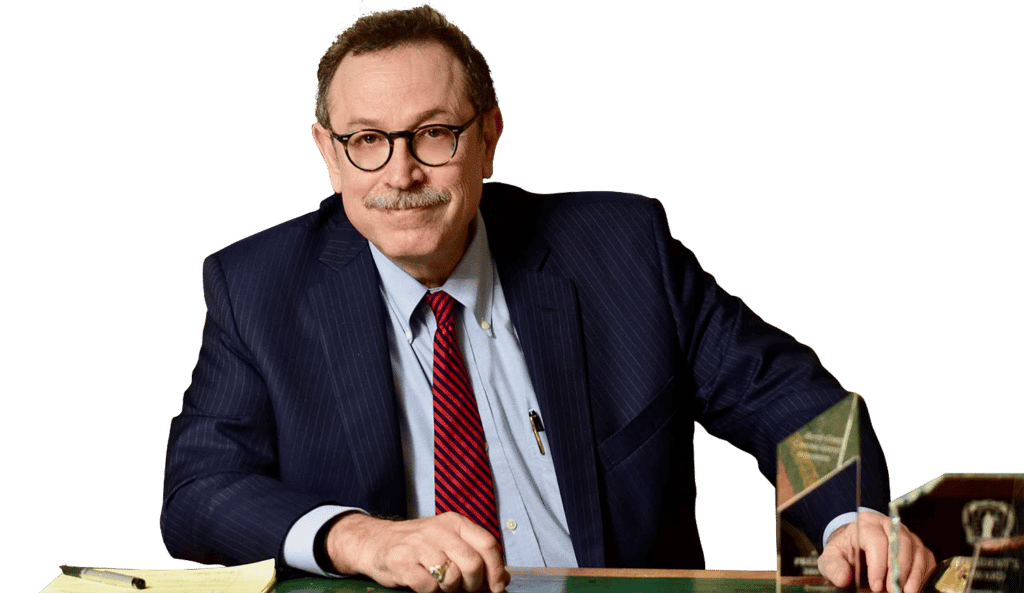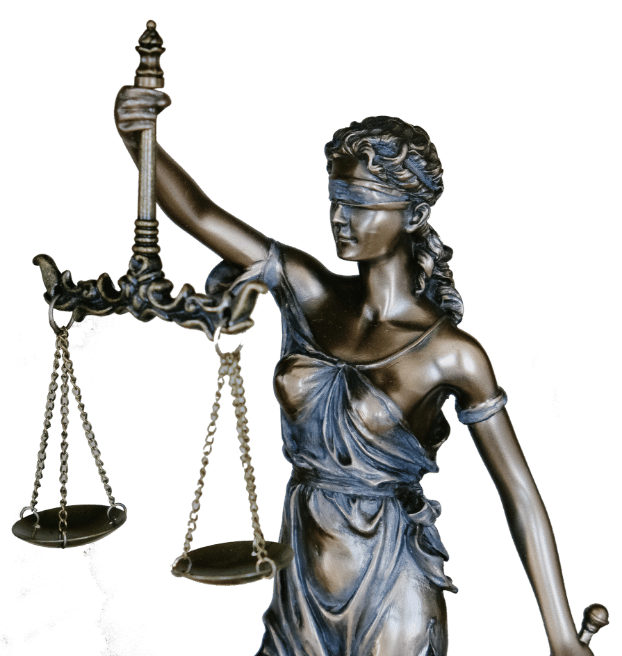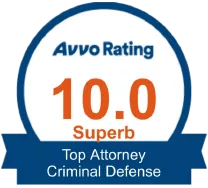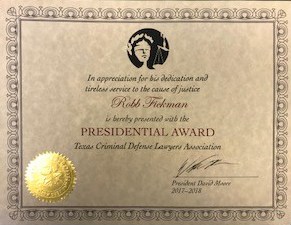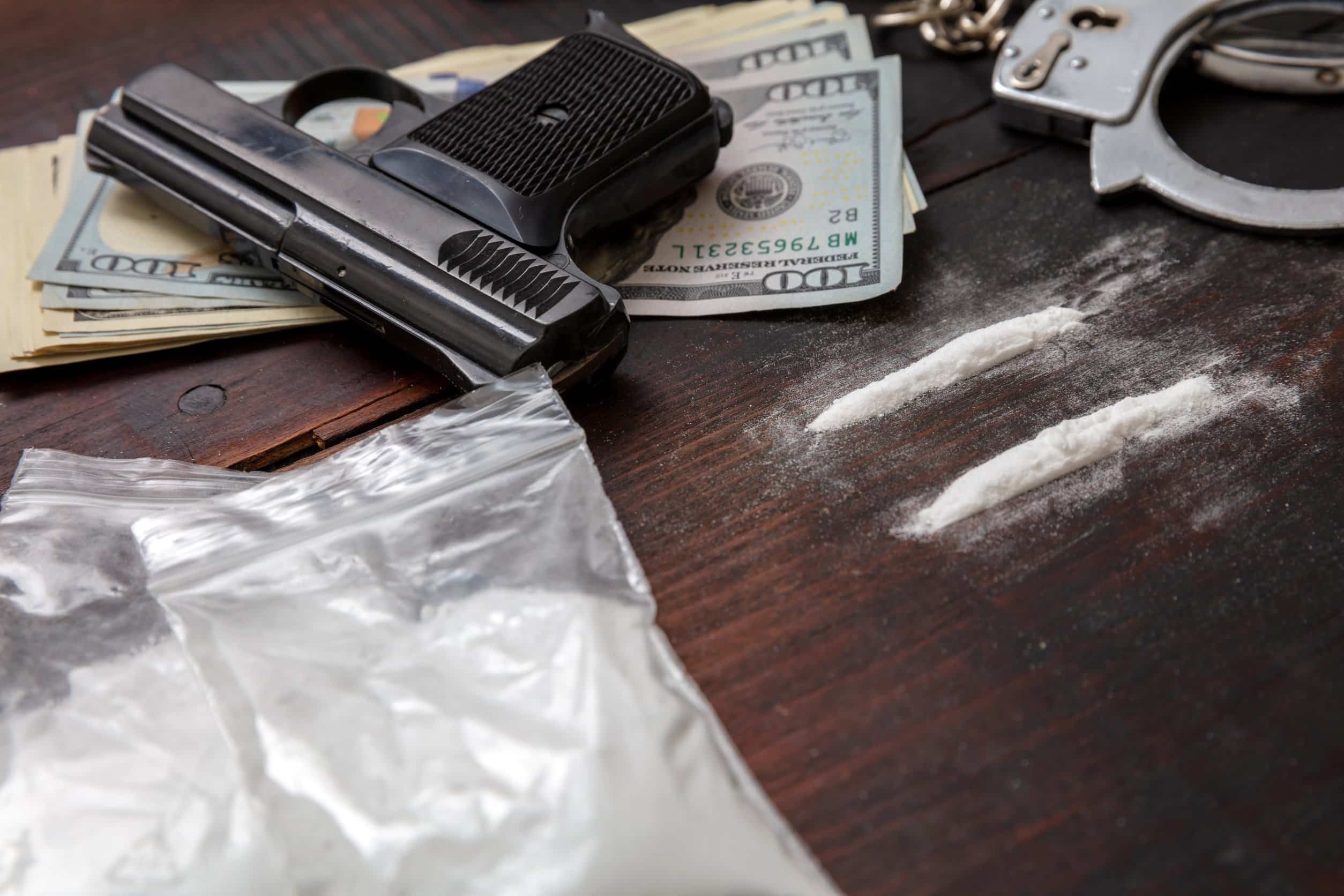
Houston Drug Trafficking Lawyer
Federal Drug Crimes Lawyer Robert Fickman Successfully Representing Clients under Investigation and Charged with Federal Drug Offenses.
Robert Fickman is an experienced federal criminal defense lawyer with over 40+ years of experience vigorously defending individuals who have been investigated or charged with federal drug offenses. Robert Fickman has an AV rating with Martindale-Hubbell. That is Martindale-Hubbell’s highest rating. Mr. Fickman has been recognized for many years by Thomson Reuters as a Houston area Criminal Defense Super Lawyer.
Mr. Fickman has obtained the dismissal of federal drug charges. He has convinced judges to throw out federal drug charges. More importantly, he has won federal drug conspiracy trials. Most recently, on August 8, 2022, Mr. Fickman won a federal drug conspiracy trial in United States v. Cristian Rebolledo. The case involved 56 indicted defendants. Most of the defendants pled guilty. Mr. Fickman’s client, Mr. Rebolledo, was one of the few who held out and went to trial. Of the 56 indicted defendants in the case, Mr. Fickman’s client, Mr. Rebolledo, was the only client to be found NOT GUILTY. Mr. Fickman received congratulations from over 300 of his colleagues for this tremendous victory.
Robert Fickman Teaches Other Lawyers How to Defend Federal Drug Crimes
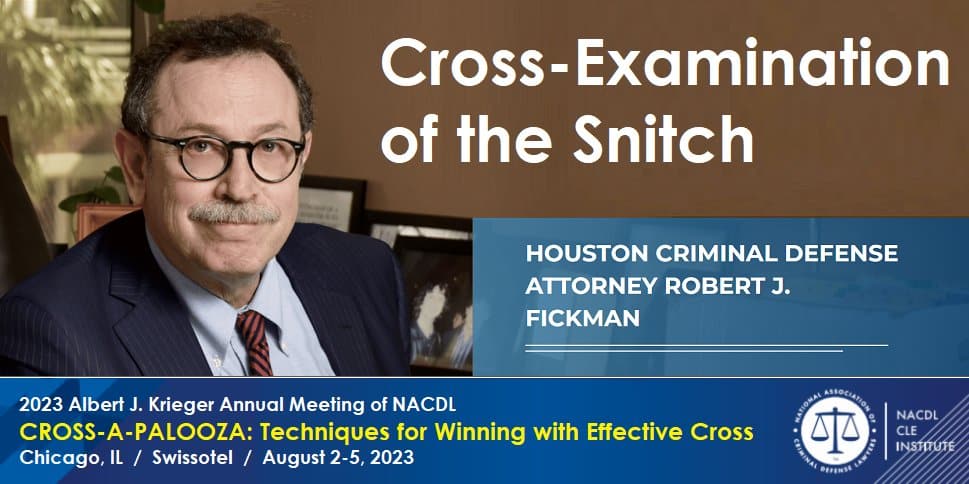
For many years Mr. Fickman has been invited to teach other lawyers how to defend those charged with federal drug offenses. In 2010 and 2014, Mr. Fickman taught at the l National Association of Criminal Defense Lawyers’ Annual “Defending Modern Drug Cases” seminar in Las Vegas, Nevada. His topic was “How to Cross a Snitch.” Mr. Fickman taught other defense lawyers how to cross-examine snitches. Mr. Fickman is a highly-rated speaker. In 2010, 2014, and 2022 he was featured on the NACDL “Best Speakers of the Year” DVD. On September 30, 2022, Mr. Fickman again spoke at the National Association of Criminal Defense Lawyers’ Annual “Defending Modern Drug Cases” Seminar in Las Vegas, Nevada. Once again, Mr. Fickman taught other criminal lawyers “How to Cross a Snitch.”
Mr. Fickman has taught other criminal defense lawyers from across the country how to defend federal drug cases. He has appeared as a guest speaker at criminal defense legal seminars in San Francisco, Las Vegas, Memphis, Pensacola, and Maine.
In Texas, Mr. Fickman has appeared as an invited guest speaker at criminal law seminars in Houston, Austin, San Antonio, El Paso, Lubbock, Galveston, and Round Rock.
Robert Fickman has successfully defended people from all walks of life who have found themselves facing serious federal drug charges.
Federal Drug Investigations
Federal drug investigations can be complicated, and they can go on for lengthy periods of time. If you believe you are under investigation for being involved in a federal drug offense, you should immediately contact Federal Drug Crimes Lawyer Robert Fickman.
Do Not Talk to Anyone– Most importantly, you should not speak to any federal or state law enforcement agent. If you believe you are under investigation, you should immediately retain counsel to protect your legal rights. Robert Fickman has successfully defended people who were under investigation and kept them from being charged with federal offenses.
Federal Law enforcement agents employ several different techniques to investigate federal drug offenses. Listed below are common investigative tools that federal agents use:
Confidential Informants– Quite often, federal investigations will begin when federal agents receive information from an informant who identifies a person or persons alleged to be involved in federal drug trafficking.
Surveillance- Federal agents often set up physical surveillance on the suspected drug trafficker. Surveillance may come in different forms. Federal agents may watch a suspect’s home or business to identify who comes and goes from the home or business. Federal agents may also follow the suspect when he drives to see what locations he frequents and who he visits; It is not unusual for federal agents to make surveillance videotapes or still photos of suspected drug deals and drug dealers.
Background Investigation– Federal agents will always run the criminal record of any suspected drug trafficker. If they find that the suspect has any prior criminal record involving drugs, that will strengthen their belief that the suspect may, in fact, be trafficking. Federal agents will also investigate the suspect’s work history. If the suspect has a job, federal agents may check out the suspect’s job to see if it appears legitimate employment or a front for a drug trafficker.
Internet Investigations -Federal agents often conduct internet investigations into the suspect’s life. They might review the suspect’s social media posts to see who he associates with.
Title Three Wiretaps– If federal agents develop probable cause to believe that a suspect is engaged in drug trafficking, they may apply for a federal wiretap. To obtain the wiretap, the federal agents must convince a federal judge that listening in on the suspect’s phone calls is likely to produce evidence that the suspect is, in fact, engaged in drug trafficking. If the wiretap is granted, the agents will listen in on all calls to determine whether they intercept drug dealing-related calls. If the agents obtain evidence that the suspect is involved in drug dealing, they may apply to the federal judge to expand the period of time that the wiretap may be used. Those engaged in drug trafficking often talk in code. The code is oftentimes very obvious and easy to break.
Marked Unit Stops– If federal agents learn that a drug deal is about to go down, they may have a marked unit pull over the suspected drug dealer or buyer. The federal agents will purposely use a marked unit to make it appear that they stumbled on the vehicle that was carrying drugs. The agents will do this to stop the drug deal from being completed while maintaining the secrecy of their ongoing federal investigation.
Undercover Agents– If federal agents believe that someone is engaged in drug trafficking, they may have a confidential informant introduce the suspected drug trafficker to an undercover agent acting as a drug dealer. The undercover agent will often try to learn the suspect’s source of supply. The undercover agent will also typically arrange to purchase numerous drugs from the suspect. If an undercover agent is involved, he will record all phone calls. Depending on security concerns, the undercover agent may or may not wear a wire.
Search Warrants- If the federal agents have probable cause to believe that drugs will be found at a certain location, they may apply for a federal search warrant authorizing them to search that location and to seize anything related to drug trafficking.
Obtaining Confessions– Federal agents will use a variety of techniques to try and secure a confession from those who are detained or arrested for drug trafficking. It is important to know that under federal law, the agents may make misleading and even false statements to suspects to secure a confession. Agents often promise that if the suspect confesses, the agents will tell the prosecutor, which will help the suspect get a lighter charge or sentence. This kind of statement is misleading. Federal agents have no authority to enter into any agreement that is binding on the federal government. Only a federal prosecutor, an Assistant United States Attorney, can enter into an agreement that binds the federal government. If a person is detained or arrested, they are foolish to talk to federal agents, and it is a mistake to believe any promise the agents may make.
Federal Drug Trafficking Crimes
Federal Drug Crimes Lawyer Robert Fickman defends clients accused of all kinds of federal drug crimes. The two most common federal drug crimes he defends against are:
- Manufacturing, distributing, or possessing with intent to distribute a controlled substance: and
- Conspiracy to engage in a Federal drug offense.
Manufacturing, Distributing, or Possession with Intent to Distribute a Controlled Substance
21 United States Code Section 841(a)(b)(1)(A)
Under 21 United States Code 841(a), it shall be unlawful for any person knowingly or intentionally to manufacture, distribute, or possess with intent to distribute a controlled substance. The basic punishment range for these drug offenses is determined by the amount and type of drug involved.
The statute sets out the punishment range. The punishment range means the minimum and maximum possible punishment for manufacturing, distributing, or possessing with intent to distribute different controlled substances. Determining a more precise sentence estimate is a more complicated process involving analyzing the Federal Sentencing Guidelines. The Federal Sentencing Guidelines were first enacted in 1987. Mr. Fickman has studied the Federal Sentencing Guidelines and their amendments since they were enacted in 1987. Mr. Fickman explains the Guidelines to all clients and gives all federal clients his best estimate of their potential sentence under the Federal Sentencing Guidelines.
Federal sentencing is very serious. There is no parole in the federal system, and those convicted must do most of their sentence before they are eligible for release. That is one reason that if one is charged with a drug crime in federal court, one must do their best to obtain the best possible lawyer they can afford. Robert Fickman has handled federal drug cases for almost four decades. He knows what is at stake, and he will fight for you.
Possible Federal Sentencing Range
Under 21 United States Code Section 841 (b)(1)(A), an accused person shall be sentenced to a term of imprisonment of not less than 10 years or more than life if they are convicted of manufacturing, distributing or possessing with intent to distribute any of the following drugs:
- 1 Kilogram or more of a mixture or substance containing a detectable amount of heroin; or
- 5 Kilograms or more of a mixture or substance containing a detectable amount of cocaine; or
- 280 grams or more of a mixture or substance which contains cocaine base (like “crack”); or
- 100 grams or more of phencyclidine (PCP) or 1 kilogram or more of a mixture or substance containing a detectable amount of phencyclidine (PCP); or
- 10 grams or more of a mixture or substance containing a detectable amount of lysergic acid diethylamide (LSD); or
- 1000 kilograms or more of a mixture or substance containing a detectable amount of marijuana; or
- 50 grams or more of methamphetamine.
These sentencing ranges are subject to increase if death or serious bodily injury results from using such substances. The potential sentencing range can also be enhanced if the accused has a prior conviction for a serious drug felony or a serious violent felony.
Under 21 United States Code Section 842 (b)(1)(B), an accused person shall be sentenced to a term of imprisonment of not less than five years or more than 40 years if they are convicted of manufacturing, distributing, or possessing with intent to distribute any of the following lesser amounts of drugs:
- 100 grams or more of a mixture or substance containing a detectable amount of heroin; or
- 500 grams or more of a mixture or substance containing a detectable amount of cocaine; or
- 28 grams or more of a mixture or substance which contains cocaine base (like “crack”); or
- 10 grams or more of phencyclidine (PCP) or 1kilogram or more of a mixture or substance containing a detectable amount of of phencyclidine (PCP); or
- 1 gram or more of a mixture or substance containing a detectable amount of lysergic acid diethylamide (LSD); or
- 100 kilograms or more of a mixture or substance containing a detectable amount of marijuana; or
- 5 grams or more of methamphetamine.
Federal Drug Conspiracies
The Federal government uses conspiracy charges in almost every case that involves more than one person. The basic federal conspiracy law is in 18 United States Code Section 371. This Section states:
If two or more persons conspire either to commit any offense against the United States or to defraud the United States or any agency thereof in any manner or for any purpose, and one or more of such persons do any act to effect the object of the conspiracy, each shall be fined under this title or imprisoned not more than five years or both.
21 U.S. Code Sec. 846 Drug Conspiracy
The drug conspiracy law is found at 21 U.S.C. § 846. It states, in pertinent part, that any person who attempts or conspires to commit any federal drug offense shall be subject to the same penalties as those prescribed for the offense, the commission of which was the object of the attempt or conspiracy. For example, a person convicted of Conspiracy to Distribute 10 Kilograms of cocaine will face the same sentencing range as a person convicted of the Distribution of 10 Kilograms of cocaine.
What is a Federal Conspiracy?
Under Federal law, a conspiracy is an agreement between two or more persons to join together to accomplish some unlawful purpose. It is a kind of criminal partnership in which each member becomes the agent of every other member.
What are the Elements of a Federal Drug Conspiracy?
Under Federal law, for a jury to find an accused person guilty of a Conspiracy to Possess with Intent to Distribute a Controlled Substance, the jury must be convinced that the government has proved each of the following elements beyond a reasonable doubt:
- That two or more persons, directly or indirectly, reached an agreement to possess with intent to distribute a controlled substance;
- That the accused knew of the unlawful purpose of the agreement;
- That the accused joined in the agreement willfully, that is, with the intent to further its unlawful purpose;
- That the overall scope of the conspiracy involved an alleged amount of a listed controlled substance; and
- That the accused knew or reasonably should have known that the scope of the conspiracy involved the alleged amount of the listed controlled substance.
Federal Conspiracy Laws give the Federal Government Broad Power
Under federal law, one may become a conspiracy member without knowing all the details of the unlawful scheme or the other alleged conspirators’ identities. If a defendant understands the unlawful nature of a plan or scheme and knowingly and intentionally joins in that plan or scheme on one occasion, that is sufficient to convict him or her for conspiracy even though the defendant had not participated before and even though the defendant played only a minor part.
The government need not prove that the alleged conspirators entered into any formal agreement nor that they directly stated all of the scheme’s details. Similarly, the government need not prove that all of the details of the scheme alleged in the indictment were actually agreed upon or carried out, nor must it prove that all of the persons alleged to have been members of the conspiracy were such or that the alleged conspirators actually succeeded in accomplishing their unlawful purpose,
Federal Drug Crimes Lawyer Robert Fickman has Successfully Defended people Charged with Federal Drug Crimes Using some of the following approaches
Federal Drug Crimes Lawyer Robert Fickman believes that preparation is the key to victory in any case. He thoroughly prepares for trial. He goes to trial, having already developed a defense theory and battle plan that aggressively attacks the federal government’s case.
Destroying the Credibility of Snitches and Cooperating Co-defendants
In prosecuting Federal Drug Trafficking cases, the government will often indict many alleged co-conspirators. It is not unusual for indicted co-defendants to enter into plea agreements with the government where they agree to cooperate. These co-defendants plead guilty and provide information and testimony to the government in the hope of getting a lower sentence. In almost every multi-defendant case, there will be at least one or more cooperating co-defendants or snitches.
Federal Drug Crime Lawyer Robert Fickman has developed his own technique for cross-examining co-operating co-defendants and snitches. Robert Fickman has taught his technique to defense lawyers all over the country. He relentlessly attacks the snitch’s credibility, showing that the snitch has lived a life of lies. He uses a timeline that he calls “The List of Lies.” During cross-examination, Mr. Fickman chronicles important events in the snitch’s life. He demonstrates that the snitch has lived a life of lies and is not worthy of belief. He shows the jury the snitch’s history of lies and demonstrates the snitch’s motive to lie to the jury during the trial.
Raising Reasonable Doubt about Agent’s Surveillance Testimony- The federal government will often use surveillance videos or still photos in their cases. Federal agents will identify the accused as being in the surveillance video or photos. These identifications by the federal agents must be attacked. Agents make mistaken identifications and the possibility that the identification is a mistake must be demonstrated to the jury.
Raising Reasonable Doubt about the Identification of the Voice of the Accused Being on Wiretap Calls– The federal government will often claim that the accused’s voice is on wiretap calls. The government does not always know this, and their claim may result from mistaken voice identification. Showing that the voice of the accused is not on any tape is vitally important. The government has made mistakes before in voice identification. Mr. Fickman fought one case where the government maintained that his client’s voice was on Title 3 wiretap recordings. Mr. Fickman investigated and challenged the identification of his client’s voice. A week before the trial, the government conceded that they were wrong and that the accused’s voice was not that of Mr. Fickman’s client. Mr. Fickman’s client was found not guilty.
Motions to Suppress Drugs Seized during a Search– Any time the government searches a home or vehicle, the results of that search may be subject to a motion to suppress. In a motion to suppress, it is alleged that there was no legal basis for the initial stop or search. Even if the government has a warrant for a search, the warrant may be defective, and the resulting search may be subject to a motion to suppress. In one case, where there was an unlawful search, Mr. Fickman obtained the suppression of hundreds of kilograms of cocaine found in a warehouse.
Motions to Suppress Out-of-Court Identifications of the Accused– Any time the government relies on evidence of prior out-of-court identifications of the accused, the prior identifications may be suppressed. If the procedure used by the federal agents in obtaining the identifications was unduly suggestive to make the resulting identifications unreliable, the identifications might be subject to attack.
Motions to Suppress Alleged Confessions– Federal agents almost always try to get the accused to confess to the offense under investigation. In some cases, federal agents will record statements. In other cases, they will obtain hand-written statements.
Sometimes, the agents will claim the accused made an oral confession to the agent, which was neither recorded nor written down. The admissibility of any confession may always be challenged. Agents will assert that the accused waived his privilege against self-incrimination before making any statement. For a waiver to be valid, it must be voluntarily, knowingly, and intelligently made. In one case, an agent testified that Robert Fickman’s client made an oral confession to the agent. On cross-examination, Mr. Fickman attacked and mocked the agent’s claim that his client confessed, and his client was acquitted.
Federal Drug Crimes Lawyer Robert Fickman Will Fight for You
Federal Drug Crimes Lawyer Robert Fickman has defended his fellow Texans for 40+ years. He has never prosecuted any Texan or any person for that matter. He believes strongly in our fundamental Constitutional rights. As a defense attorney, he took a sworn oath to defend his clients zealously and support the Constitution of the United States and the State of Texas. Robert Fickman is proud to defend his clients and support the Constitution zealously.
Robert Fickman believes in the presumption of innocence. He believes that anyone accused of any crime in this country is entitled by law to be presumed innocent. While Robert Fickman believes in the presumption of innocence, he is not naïve; far from it.
After defending his fellow Texans for almost four decades, Robert Fickman knows that many do not believe in the presumption of innocence. Many believe anything law enforcement says. Many believe that if a person is accused of a crime, they must be guilty.
Robert Fickman fights to ensure his clients are afforded the full protection of the presumption of innocence. He fights to ensure that the burden of proof always remains on the Government. He fights to ensure that if the Government cannot prove their case beyond a reasonable doubt, his clients will be found not guilty. All drug trafficking charges are serious. Robert Fickman does not believe an allegation means anything. It is not evidence of any crime. It is simply the government’s assertion that someone committed a serious crime.
Experienced Federal Drug Crimes Lawyer
Robert Fickman has almost four decades of experience fighting the Federal Government. He has fought & cross-examined Homeland Security Agents, FBI Agents, DEA agents, IRS agents, Customs Agents, Secret Service Agents, Postal Inspectors, ATF agents, and Task Force Agents. He knows the enormous power that these agencies and their agents have. It is Robert Fickman’s job to protect you from these agencies’ abuse of their enormous power. Robert Fickman has defended Federal Drug Conspiracy trials that lasted for weeks. His longest Federal Drug trafficking trial involved ten co-defendants, and the trial lasted for nine weeks. In the end, Robert Fickman’s client was acquitted of all charges.
A SUMMARY OF CRIMINAL DEFENSE ATTORNEY ROBERT FICKMAN’S CREDENTIALS
- Robert Fickman has been a criminal defense attorney in Houston for 40+ Years.
- Robert Fickman has handled over 300 Federal Cases.
- Robert Fickman has kept some clients from being charged in Federal Court.
- Robert Fickman has obtained the dismissal of some Federal Charges.
- Robert Fickman has gone to trial in Federal Court and obtained acquittals on all charges for some clients. In 2022, Robert Fickman went to trial in United States v. Rebolledo. Robert Fickman’s client was the ONLY client in the entire case to be acquitted on all charges.
- Robert Fickman has argued many cases before the Fifth Circuit Court of Appeals.
- Robert Fickman has had an AV Rating (the highest rating) with Martindale Hubbell for over 20 years.
- Robert Fickman has been named a “Texas Super Lawyer” since 2015.
- Robert Fickman is well-respected by his peers and has received numerous awards.
- Robert Fickman was the President of the Harris County Criminal Lawyers Association (HCCLA) from 2006-2007.
- Robert Fickman is a past Texas Criminal Defense Lawyers Association (TCDLA) board member.
- Robert Fickman serves on the HCCLA and TCDLA Strike Forces, where he is called upon to come to the aid of other criminal defense lawyers.
- Robert Fickman is an outstanding public speaker. Robert Fickman was on the National Association of Criminal Defense Lawyers “Best of 2010 Speakers”, “Best of 2014 Speakers ” and “Best of 2022 Speakers Disc.”
- Robert Fickman was named “Mr. Declaration of Independence.” in the Texas State Bar Journal for his volunteerism.


